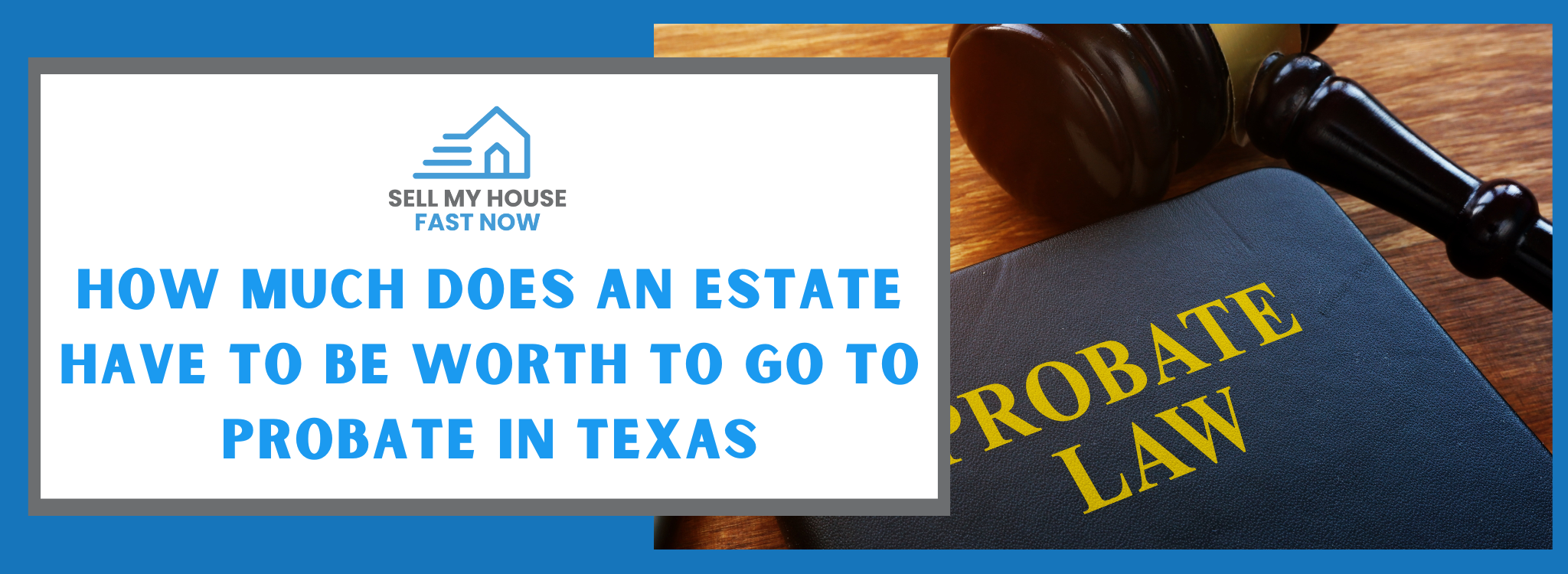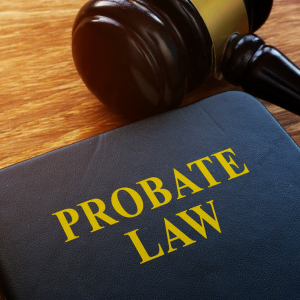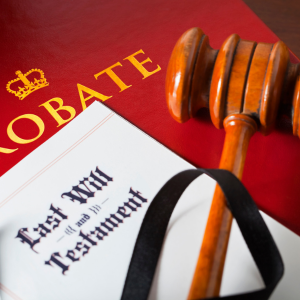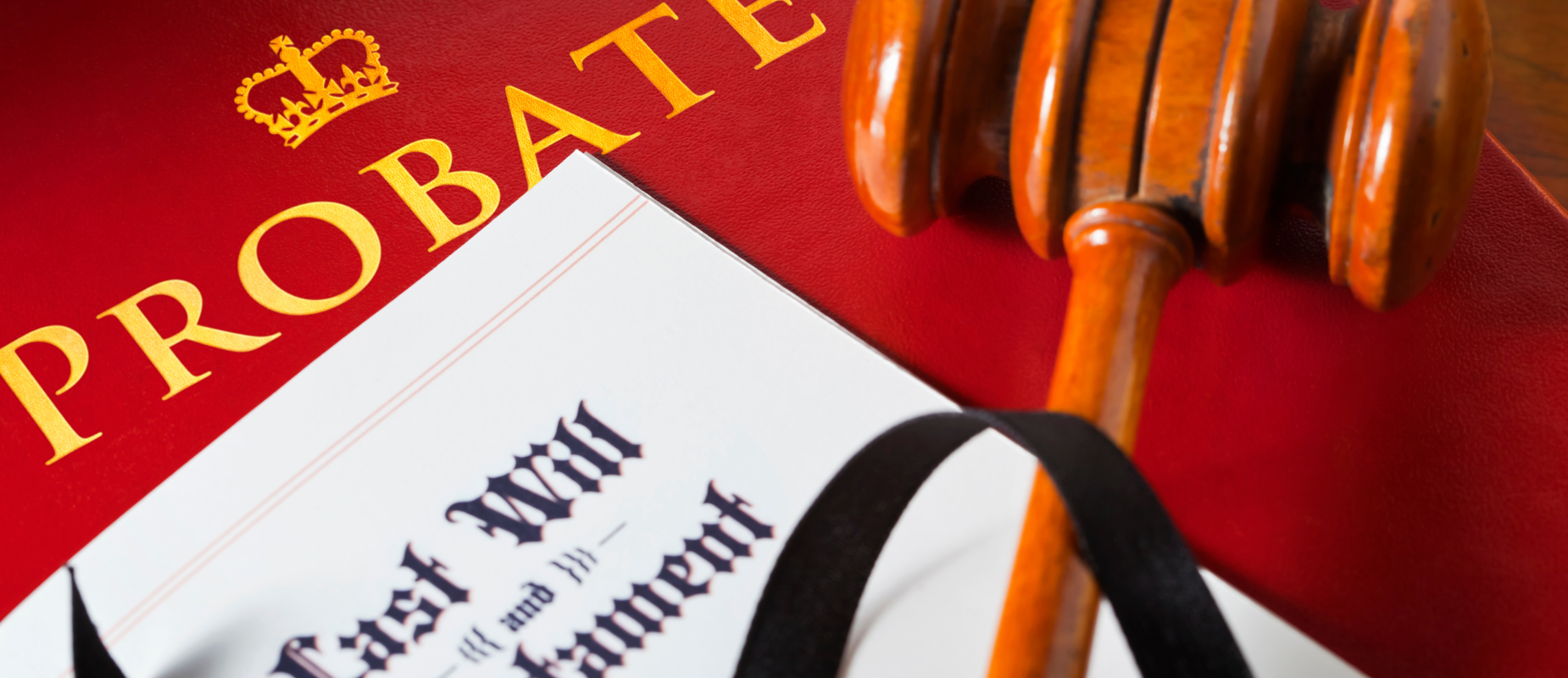
When Does an Estate Need to Go Through Probate in Texas?

When the deceased’s assets are not automatically transferable through joint ownership or specified beneficiaries, Texas probate transfers ownership lawfully. A small estate affidavit may simplify probate for estates under a certain value. The estate can avoid probate if its assets, excluding the homestead and exempt property, amount to $75,000 or less. This simplified approach saves time and money, making it suitable for Texas’s smaller estates.
Real estate, personal property, and commercial interests without survivorship rights are usually probated in Texas to ensure the deceased’s desires and legal requirements are met. Intestacy, where state rules distribute assets, can complicate the procedure if there is no will or a challenged will. A probate attorney is often needed to overcome legal complexities and comply with county requirements. Probate might be a simple legal formality or a complex court proceeding, depending on the assets and judicial action. Comprehensive estate planning and legal advice can help settle the estate quickly and in compliance with Texas law.
Understanding How Much Does Probate Cost in Texas?

Understanding probate expenses in Texas is determined by various aspects, including the size and complexity of the estate, the types of assets involved, and the availability of a comprehensive estate plan. Court fees, appraisals, executor fees, and attorney fees are common costs that might increase for larger or more complex estates. Proper estate preparation, such as employing affidavits or ensuring assets are properly titled, can assist in speeding the probate procedure and saving money. Understanding when probate is required and which assets, like as property or vehicles, necessitate legal transfer is critical for successful cost control.
While more expensive, hiring probate counsel can save time and money by navigating the process quickly and uncovering opportunities to avoid probate or streamline administration. In Dallas and throughout Texas, early estate planning is critical to reducing probate-related costs. Properly evaluating assets and knowing the estate’s requirements may ensure a more efficient and cost-effective process while adhering to the deceased’s desires.
Does a Will Have to Be Probated, and What Assets Are Included?

In Texas, assets determine whether a will must be probated. A will doesn’t require probate to transfer assets to heirs legally, but an estate usually must. Joint property and assets with beneficiaries, including life insurance and retirement funds, avoid probate. Trust assets don’t require probate; only “probate assets,” like a vehicle titled entirely in the deceased’s name, do.
Whether probate is needed depends on estate valuation. A small estate affidavit lets heirs transfer assets without probate for estates under a specific value. Some larger estates require complete probate. Since Texas probate law is complicated, engaging a probate counsel can help families save time and money and avoid legal issues.
Alternatives to Traditional Probate

How can a revocable trust bypass the probate process?
A revocable trust helps you manage your assets during your lifetime and transfer them smoothly upon death without going through probate. By placing assets in the trust, you control them while alive, and then a trustee distributes them according to your instructions after you pass away. This keeps your affairs private and speeds up the distribution process. In Texas, bypassing probate saves time and reduces legal costs. Consulting with an estate planning attorney can help create a trust that meets your needs and works as a probate alternative.
What role does joint tenancy play in estate planning?
Joint tenancy with rights of survivorship allows two or more people to own property together equally. When one owner dies, their share automatically passes to the surviving owner(s), avoiding probate. In Texas, this is useful for bank accounts or real estate, helping to avoid delays and legal fees tied to probate. Understanding how joint tenancy compares to community property laws and affects Texas trusts and estates is important. An estate planning attorney can advise if this option matches your goals and the probate asset threshold.

Are transfer-on-death deeds viable in Texas?
Transfer-on-death (TOD) deeds let you transfer real estate directly to beneficiaries upon death without probate. In Texas, these deeds must be filed with the county recorder to be valid. TOD deeds provide a simpler probate alternative by ensuring real property transfers outside of probate, saving time and cost. Knowing Texas probate laws and their relation to TOD deeds is crucial for sound estate planning. Consulting an attorney ensures compliance with legal requirements and effective use of this strategy in your estate plan.
By using revocable trusts, joint tenancy, or transfer-on-death deeds, you can simplify managing and transferring your estate, giving you and your loved ones peace of mind. Contact an estate planning expert at Sell My House Fast Now for personalized advice.
Financial Implications of Probate

What costs are associated with probate in Texas?
Probate in Texas can incur various costs influenced by the estate’s value and complexity. Key expenses often include:
- Attorney Fees: Legal help is usually needed, and costs can differ based on the lawyer’s experience and case complexity.
- Court Costs: Filing with the court requires fees, which may increase if disputes arise.
- Appraisal Fees: Estates often need appraisals to determine asset values accurately.
- Executor Fees: The executor may receive a fee for their service, typically a percentage of the estate value.
These costs can vary, so it’s important to understand how they apply in your specific situation during the Texas probate process.
Are there fees that can be avoided or minimized?
Certain probate fees in Texas can be avoided or reduced with proactive measures:
- Estate Planning: Setting up a living trust can help avoid probate, thus lowering related fees.
- Small Estate Procedures: If an estate is below the Texas probate threshold, it may qualify for a simplified process.
- Joint Ownership and Beneficiary Designations: Naming beneficiaries for accounts and property can allow assets to transfer without going through probate.
- Using a Texas Probate Checklist ensures all steps are followed efficiently, potentially avoiding extra costs.

Discuss these strategies with a qualified attorney to ensure they comply with Texas law.
How does probate impact estate taxes in Texas?
Probate can influence estate taxes in Texas, affecting the amount heirs receive. Considerations include:
- Texas Estate Tax Laws: Texas doesn’t impose a separate estate tax, but federal taxes may still apply based on the estate’s value.
- Estate Planning: Good planning can help manage or reduce potential tax liabilities.
- Probate and Taxes: While probate doesn’t directly increase estate taxes, it can delay asset distribution, affecting tax deadlines and calculations.
- Exceeding the Threshold: Understanding the Texas probate threshold is essential, as estates above this limit might face more complex procedures.
Consult with an estate planning expert to effectively handle tax implications.
For more detailed advice on probate’s financial implications, consider consulting an experienced professional. Our team at Sell My House Fast Now is available to assist with any inquiries.
Future Estate Planning and Probate Avoidance

What strategies can simplify future estate settlements?
Effective estate planning makes probate in Texas easier and ensures a smooth settlement process. Consider these probate avoidance strategies:
- Establish a Living Trust: This allows assets to bypass probate, so beneficiaries receive their inheritance without court involvement.
- Joint Ownership with Right of Survivorship: Assets automatically transfer to the surviving owner, avoiding probate.
- Payable-on-Death (POD) Designations: Designate beneficiaries on bank accounts to ensure direct fund transfers upon death.
- Beneficiary Designations: Keep life insurance and retirement accounts updated with beneficiary details for straightforward asset distribution.
By using these strategies, you can simplify estate settlements and ensure your wishes are respected.
How to ensure asset distribution aligns with personal wishes?
To make sure your assets are distributed according to your desires, thorough estate planning in Texas is essential. Follow these steps:
- Draft a Clear Will: Specify how you want your assets divided among beneficiaries. This guides the estate settlement process in Texas.
- Update Your Will Regularly: Life changes often. Ensure your will reflects current situations and priorities.
- Consider a Trust: Trusts offer flexibility and control over how and when beneficiaries receive assets.
- Understand Inheritance Laws: Learn about Texas inheritance laws to avoid legal complications.
- Consult an Estate Planning Attorney: Professional advice helps manage complex scenarios and checks all legal boxes.

Implementing these measures aligns asset distribution with your wishes and reduces potential disputes.
What legal tools help in crafting a solid estate plan?
Using various legal tools creates a strong estate plan to protect assets and ease Texas probate:
- Trusts: They manage assets and might offer tax benefits. Texas laws provide for different trust types based on needs.
- Life Estates: This lets someone use the property for life while another inherits it later, ensuring a smooth transition.
- Power of Attorney: Appoint someone to handle financial and healthcare decisions if you can’t do so yourself.
- Transfer on Death Deed: In Texas, this deed directly passes real estate to a beneficiary, skipping probate.
- Will: A well-written will outline asset distribution and appoint guardians for minors.
Together, These tools strengthen your estate planning strategy, ensuring assets transition smoothly as per your wishes.
FAQs:
What is the minimum value for an estate to require probate in Texas?
In Texas, an estate valued at over $75,000 typically needs to go through probate. However, estates below this amount might qualify for a simpler probate process.
Does an estate in Texas need to go through probate if valued at less than $75,000?
An estate worth less than $75,000 may avoid the full probate process. Texas offers options like a small estate affidavit for easily handling smaller estates.
What happens if an estate is not probated within four years from the decedent’s death in Texas?
If you don’t probate an estate within four years of the decedent’s death, it may not be administered through probate. This timeline is crucial for beneficiaries to act.
What does a probate bond entail in Texas?
A probate bond in Texas ensures the executor does their job correctly and protects the estate’s interests. It’s often needed unless waived in the will.
Are there simplified probate processes available in Texas?
Yes, Texas has simplified probate options, such as independent administration and a small estate affidavit, to facilitate the handling of uncomplicated estates.
How can Texas’s homestead exemption impact an estate?
The homestead exemption in Texas can protect a primary residence from creditors during probate, helping ensure it passes to heirs without being used to pay off debts.
What are the executor’s duties during probate in Texas?
The executor manages the estate, pays debts, distributes assets to beneficiaries, and meets all legal obligations. Their role is key in the probate process.
Can a will be contested in Texas, and what does it involve?
Yes, you can contest a will in Texas if there are doubts about its validity, undue influence, or the maker’s capacity. Contesting involves court proceedings to resolve these issues.
Key Insights
- In Texas, whether an estate goes through probate depends on its value. Estates below $75,000 may use a small estate affidavit, while those above usually require full probate.
- If an estate is worth less than $75,000, it may not need formal probate, simplifying settlement.
- The small estate exemption in Texas applies to estates valued around $200 or more. Complex estates might need formal procedures.
- A probate bond may be necessary if the estate’s value exceeds $75,000, ensuring proper management by the executor.
- Texas law requires probate to start within four years of the decedent’s death, or rights to administer may be lost.
- Understanding probate fees in Texas helps in financial planning. Fees vary based on estate size and legal complexity.
- Informal probate Texas offers simpler processing for qualifying estates, reducing administrative work.
- Estate executor duties in Texas include managing assets, paying debts, and distributing property per the will or state law.
- Subscribe to our newsletter for updates on Texas probate laws and expert advice for your estate planning needs.
These details apply to all of Texas, including cities like Houston, Irving, Dallas, Arlington, and Fort Worth, as well as their surrounding areas. For additional assistance or specific inquiries, call us at (800) 467-0003. Visit our website, Sell My House Fast Now, for more information and a full description of our services.
More Resources For Sellers In Texas


